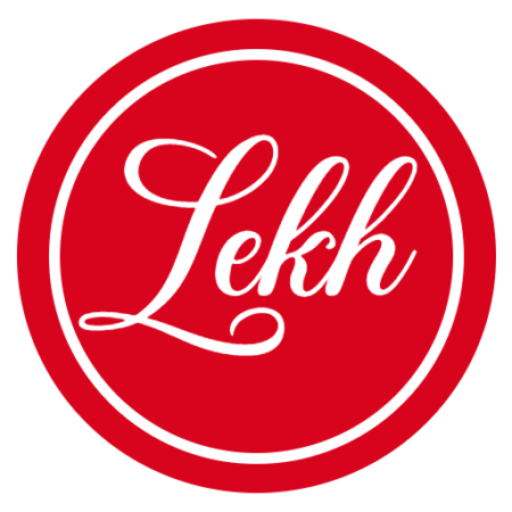Discover the long-term benefits of alternative healthcare and why natural healing may be a better choice than conventional medicine. Learn about the holistic approach to health, the sustainability of natural remedies, and how these treatments address the root causes of ailments. Explore the skepticism towards alternative medicine, the financial implications, and the importance of empowering individuals with healthcare choices. Unlock the potential of natural remedies for a healthier, more sustainable future. There is an alternative that is probably better than most think. It takes a little longer and often costs a little more, but in the long run, it will…...
Sign in with Google to continue reading
💬 Meet Our Members

Antonius Bakker
Antonius "Ton" Bakker, born May 23, 1961, in the Netherlands, is a…

Dr. B.H.S Thimmappa
B.H.S. Thimmappa is a seasoned chemistry professional with extensive experience in developing…

Carl Scharwath
Carl Scharwath, has appeared globally with 210+ publications selecting his writing or…

Sindhu Gopalkrishnan
I love writing as I get to create something beautiful and touch…

Julia Orozco
Poet who love nature and writing poetry.
Tamizh Ponni VP
Tamizh Ponni VP is an ambivert who loves to express her skills…
Support independent journalism. Your membership keeps us going.
Discover the long-term benefits of alternative healthcare and why natural healing may be a better choice than conventional medicine. Learn about the holistic approach to health, the sustainability of natural remedies, and how these treatments address the root causes of ailments.
Explore the skepticism towards alternative medicine, the financial implications, and the importance of empowering individuals with healthcare choices. Unlock the potential of natural remedies for a healthier, more sustainable future.
There is an alternative that is probably better than most think. It takes a little longer and often costs a little more, but in the long run, it will be much better for you, according to insiders. I am talking about regular healthcare as opposed to alternative healthcare. More and more people find the alternative better than the regular one. There are increasingly more voices telling us this. By now, you will understand that the natural way of healing is always better. Long before our era, this phenomenon was known to many people. It often takes a little longer for the ailment to disappear, but it is much more durable afterwards.
Is sustainability going to win?
A big difference compared to the medicines you get from the regular circuit is that they are often of a chemical nature and difficult for the body to break down. The organic ones, on the other hand, are broken down and often tackle the problem holistically. The chemical ones chase away the pain faster but do not directly solve the underlying cause. They often react worse to other organs or other parts of our body. This post is not an indictment of mainstream medicine, but it might make you think. What really got me thinking about this subject was the following: "Conventional medicine often only chases away the ailment, but not the underlying cause."
Does natural healing cost us too much?
You may also notice that the bottles and jars in which the natural medicines are sold no longer state what they do and what exactly they are for? Especially in the Netherlands, it is strictly monitored that these things are no longer mentioned on the packaging of these products. A few years ago, this was banned by the Dutch government, but why? In many Asian countries where Ayurvedic medicine originated, these remedies are still used enthusiastically. In these countries, the inhabitants are convinced of the effectiveness of these natural remedies. For centuries, cinnamon, ginger, coriander, turmeric, and many other seeds and spices have had medicinal properties. People here use them daily and are also firmly convinced of the effect of these herbs.
Does modern medicine see us as machines?
Why is there so much opposition from academia in the West to the use of these Ayurvedic medicines? It is always loudly claimed that the prevention of these substances has not been sufficiently scientifically demonstrated. But is there any science at all working to prove this? Is a long-term good holistic healing method interesting for the same science? Why is science active on our planet where everything must go faster and better? Why is this speed so important? Why isn't holistic medicine being looked at much more by the entire academic world?
Are we humans still guinea pigs after all?
Are these ancient cures and natural medicines perhaps too simple or impossible for the pharmaceutical industry to commercialize? Is too little profit expected from these items? Should things be presented more difficultly to the world's population so that more money can be earned? It seems to me that the "modern" means are mainly developed to get people back on their feet quickly despite their complaints, so that they can resume their work as soon as possible. Work from which the prosperous of this world earn their prosperity. Prosperity that is jealously maintained with the support of the academic world. These academics are highly educated and don't like to have their "feet in the mud."
Is humanity being protected or robbed by the medical profession?
So, the question remains: what purpose does the medical/academic world have for us humans? Why do they keep alternative and Ayurvedic medicine so strictly at bay? Herbs and spice mixtures have proven their value to entire tribes in the Asian world for millennia. Herbs that you can often grow at home without too much effort or buy everywhere in shops for a relatively small amount.
Will you also help increase the profits of the pharmaceutical companies?
It seems as if academia wants to protect itself from these relatively cheap, effective drugs. What do the academics protect us from or against? And why can't you, as a patient, choose the Ayurvedic variant of a medicine after reading any package leaflet? Does not mentioning the "instructions for use and efficacy" of Ayurvedic remedies prevent too many people from switching immediately, heralding the bankruptcy of today's medical profession? Or does the academic world ensure that we return to work more quickly, so that medical costs do not rise too high?
Is our way of becoming healthy determined by employers?
The average pharmacist cannot tell me, and perhaps many others, that they do not know the effect of many Ayurvedic medicines and herbs. Mind you, I am in favor of good quality control in advance. Surely quality control shouldn't be such a problem with the current state of medical science. Please let people be in control of their own health, give people back control over their own health. Set different requirements for getting healthy, and make healthy, not just fit for work. Who agrees with me?
You may also like to read the benefits of walking on the green grass, heal now.











